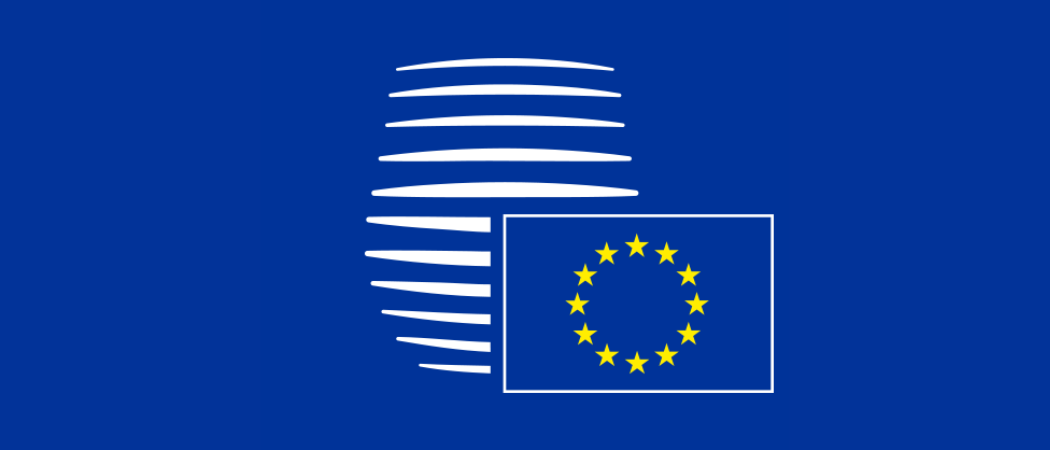Researchers welcomed the paper adopted this week, which includes plans for more basic research in the next research programme

Photo credits: European Union
Member states have laid out their broad plans for the next framework research programme, FP10, calling for EU governments to be more involved in strategic priority setting, and for the creation of ‘Collaborative Research Actions’ to support basic research.
The opinion does not address the crucial question of budget, but it does say there should be “a stable and predictable framework for research and innovation financing during the whole programming period”, and “an even more ambitious, globally competitive effective and efficient research and innovation programme than its predecessors.”
These are among the key proposals of a special member state task force set up as part of the European Research Area and Innovation Committee (ERAC), to help shape FP10. Last October, Science|Business reported on a draft of the report, and the final version was officially adopted on Wednesday.
Kamila Kozirog, policy analyst at the European University Association (EUA), welcomed the call for budget stability and a balance between basic and applied research, but would have preferred to see the task force take a clear stance on the budget.
“While we did not expect a specific budget figure in the opinion, it is disappointing that the member states representing research and innovation ministries remained silent. Without their advocacy for a larger budget, it is unlikely that finance ministers and prime ministers in some countries will even consider increasing their contributions to the EU research and innovation budget,” Kozirog told Science|Business.
For Mattias Björnmalm, secretary general of CESAER, an association of science and technology universities, the lack of references to funding is a “significant missed opportunity.”
“It's urgently clear that we must achieve the 3% GDP target for research and innovation across all member states, and that this must include a 1.25% public effort target,” he told Science|Business. “This is vitally important to ensure that the framework programme is not seen as a replacement for national investments, which is currently the case.”
Laura Keustermans, senior policy officer at the League of European Research Universities (LERU), said the opinion includes several points made during a stakeholder consultation meeting she took part in. Overall, the opinion represents an evolution rather than a revolution compared to Horizon Europe, she said.
Research Actions
The opinion recommends simplifying and streamlining the way Pillar II is structured, saying, “The current cluster structures where large units include very different themes, impede an efficient management approach and create an unnecessary obstacle for participants.”
Pillar II currently includes calls for Research and Innovation Actions and Innovation Actions for higher Technology Readiness Levels. Member states are asking for the addition of Research Actions in FP10. “This would help make it clearer that Pillar 2 is also for research, and it’s not only for the more innovation-focused projects,” said Keustermans.
This is one of several measures included in the opinion that LERU has also been calling for.
LERU also called for more simplification for grant applicants, which the opinion says should be a “core priority” of FP10.
The taskforce said there should be evaluations of the added value of the Widening measures that are intended to close the east-west gap in research capabilities, and of the European Institute of Innovation and Technology (EIT).
It also recommends “the sunsetting of instruments that are no longer relevant or appropriate”, without specifying which might be in the firing line.
There is a positive view of the European Research Council (ERC), the Marie Skłodowska-Curie Actions (MSCA), which the taskforce says, are “flagships of the Framework Programme when it comes to opportunities for individual applicants.” They should continue to be recognised for their valuable role in supporting career development as well as bottom-up, breakthrough research.
There is also a favourable mention for the European Innovation Council (EIC), with the taskforce saying it has “demonstrated its importance to address certain gaps between research excellence and the transformation of those findings into market.”
However, the ERAC taskforce suggests “Missions”, which set long-term goals in five priority areas and have faced criticism from stakeholders, should be moved out of the framework programme, saying “the fulfilment of the Mission objectives requires more than the FP can address on its own and goes beyond R&I activities.”
That would mean FP10 is solely focused on research and innovation, a move that is supported by the university lobbies.
EUA for example, has proposed handing more responsibility for implementation of the Missions to the European Structural and Investment Funds.
Priority setting
The taskforce says FP10 “should make more strategic choices”, and involve more consultation of member states and stakeholders as part of a broader strategy to leverage national, regional and private investment in research and innovation.
EUA supports this, saying universities “are not consulted enough during all stages of programme planning”.
Björnmalm agrees stakeholder organisations should have a clear role in planning and oversight, and said the text could have gone further. “It’s surprising that stakeholder organisations, while mentioned, are not seen as integral to priority setting and co-creation,” he said.
LERU is concerned about the increased involvement of member states. This “might risk slowing down the priority setting, and lead to a longer, more detailed list of priorities,” Keustermans said. “The Framework Programme is for what needs to be done together, and we don’t necessarily want the priorities to be the same in both national funding schemes and the Framework Programme, because then you are just duplicating what’s already there.”
Acknowledging the key role played by SMEs in fostering innovation, the taskforce recommends exploring the possibility of lowering the financial contribution they are required to make, which is currently 50% in some Horizon Europe partnerships.
Beyond the EU borders
Another key priority is a continent-wide approach and a faster association process for neighbouring countries that share EU values, to boost European research and innovation as whole.
Lidia Borrell-Diamán, Science Europe's secretary general, told Science|Business she welcomed the opinion since it “echoes our call for a swift association with Switzerland."
“To contribute to global leadership in science and technology, we must leverage the research and innovation capacity of our entire continent, including the UK and Switzerland, and collaborate closely with long-standing and like-minded partners also beyond our continent, starting from day one of FP10,” Björnmalm said.
The fifth freedom
The opinion talks of FP10 strengthening the European Research Area’s (ERA) role as a ‘single market for knowledge’ and of research and innovation as a ‘fifth freedom’, a concept recently put forward by former Italian Prime Minister Enrico Letta in his high profile report.
The single market, based on the free movement of goods, services, people, and capital, is “outdated” and not fit for the 21st century, Letta said. The EU needs a revamped single market that includes a fifth freedom enabling the free movement of research, innovation, knowledge and education.
Björnmalm welcomed the taskforce’s reference to this vision, saying it correctly states the framework programme is directly connected to ERA, since FP10 is its key implementing tool. However, he believes the only way to effectively establish the fifth freedom is to pursue a legally binding and mandatory approach, which the taskforce did not mention.
“It goes both ways: the framework programme is the implementing tool of ERA, but ERA must also be pursued in a way that allows the framework programme to excel. This means a mandatory and legally binding approach to achieve the fifth freedom.” Combined with a strong FP10 that “would put us on a trajectory towards achieving a science and technology union to position Europe as a global leader in research and innovation,” Björnmalm told Science|Business.
Keustermans is sceptical about the proposal to align FP10 and the ERA policy agenda. The full realisation of ERA requires measures at member state level, such as reducing barriers to researcher mobility, rather than funding from FP10, she says.
However, Borrell-Diamán expressed the need to add academic freedom FP10 recommendations, saying, “The fundamental importance and value of academic freedom and institutional autonomy must be recognised and these values must be guaranteed to all scholars in Europe.”





 A unique international forum for public research organisations and companies to connect their external engagement with strategic interests around their R&D system.
A unique international forum for public research organisations and companies to connect their external engagement with strategic interests around their R&D system.